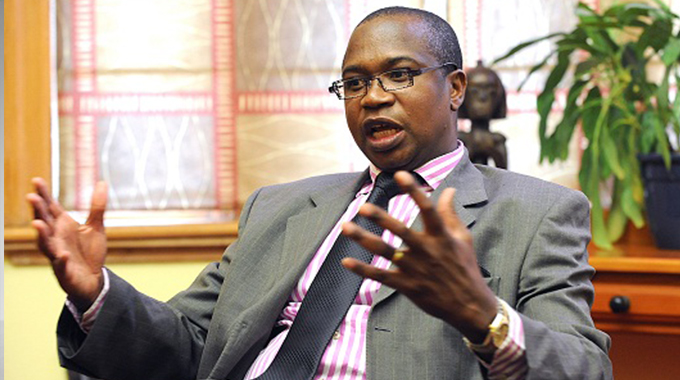EDITORIAL COMMENT: No going back on local currency

The Zimbabwe dollar has performed well since its re-introduction in June last year, but is yet to gain the full confidence of some sections of the market.
It is being rejected in some cases as businesses demand foreign currency. In other cases businesses are accepting it alongside foreign currency, especially the US dollar. Many hardware outlets in Bulawayo, for example, are selling products such as cement in US$ and accepting local currency in cash, mobile money or swipe based on the forex black market rate of the day. We have reported over the past few weeks that some fuel retailers are actually only taking the greenback.
Businesses know that accepting foreign currency for local transactions is illegal but because not many of them have been sanctioned for doing so, they are not concerned.
The situation might get difficult for them in the next few weeks as the Ministry of Finance and Economic Development, aware that there are businesses which are selling their goods and services in foreign currency, is putting in place stiff penalties to stop the corrupt practice.
“Let me be clear,” Finance and Economic Development Minister, Professor Mthuli Ncube, warned in an interview with Zimpapers Television Network (ZTN) last week.
“Zimbabwe is in a mono-currency situation. We introduced the Zimbabwean dollar; that is the domestic currency. But we also know that practically, realistically, it is taking long for Zimbabweans to adjust. Why? It is difficult to have that silver bullet where everyone complies.
“Of course, as Government we are forcing compliance. We will be introducing penalties for those who deviate. We recognise that we are in transition. We will get there. Our objective is to achieve mono-currency. We will make sure that the US dollar is pulled back. They are violating the law. We want to enforce the use of the Zimbabwe dollar.
“We also know that one of the reasons why the US dollar continues to be used is that we do not have enough Zimbabwe dollars in circulation. There is a cash deficit of domestic currency. That is why we have said we want to introduce more cash in a very prudent way. We have up to $5 notes now. We will move to $10, $20 and sometime in the future if we need a higher denomination, we will make an analysis and determine. There is no urgency in that.”
The majority of our people have no access to foreign currency, which is why they queue at banks daily to be able to withdraw money from their local currency accounts. Therefore, for businesses to demand foreign currency from their customers is to punish the majority; is to attempt to create an economy for the elite. We would not be concerned if doing so was legitimate business. The fact is it is not legitimate business, it is illegal and all criminal activity that must be punished.
In advance of the enactment of the penalties, we suggest that the Government sets them very high, ideally as a substantial percentage of the value of the transaction in question, not a blanket fine.
No country can develop without a sovereign currency. It is for this basic reason that the Government took the decision to re-introduce the Zimbabwe dollar last year, after 10 years of using a basket of foreign currencies.
We are told that some businesses are fearful that if they trade using local currency they would be exposing themselves to an unstable currency. That is a short-sighted perspective which, in our view, is only motivated by greed. We implore business to be confident in the local currency. Yes, it might be a little unstable now, but this being a transitional period, soon it will be firmer. It is theirs. It is they and every Zimbabwean who will give it its value by using it in all their transactions. We thus, implore businesses to just do the right thing, which is to unconditionally accept the local currency while not demanding foreign currency.
But it appears that moral suasion does not always work with some local businesses. All they pursue is profit, profit and more profit. For them, the law is an inconvenience. Because of this, penalties must be put in place to ensure businesses obey the law by accepting the domestic currency.
Prof Ncube recognises some factors influencing some companies to prefer to conduct their businesses in foreign currency. He observed in the ZTN interview, as he had done on many occasions earlier, that the Government will have to inject more Zimbabwe dollars into the economy to improve the availability of physical cash; that the interbank foreign exchange market still needs fine-tuning so that forex is more readily available; that the economy must generate more hard currency and so on.
We look forward to the Government addressing these weaknesses, while, simultaneously not sparing the rod on businesses that commit crime by rejecting the local currency and only accepting forex.











Comments